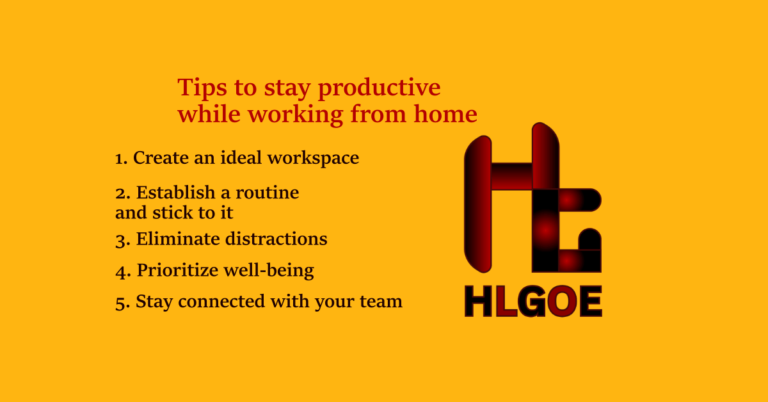Healthy Habits to Adopt for a Better Lifestyle
In today’s fast-paced world, it’s easy to get caught up in the hustle and forget the simple things that make a big difference in our health.
A healthy lifestyle doesn’t have to be complicated. The key to lasting wellness is often about small, manageable changes you can make every day.
Whether you’re looking to feel more energized, improve your mental well-being, or simply live a longer, more fulfilling life, adopting the right daily habits is essential.
The best part? You don’t need to overhaul your entire life overnight. The most powerful improvements come from consistency, not perfection. So, if you’re ready to make some positive changes, here are a few wellness tips that can help boost your physical health and mental wellness. Let’s dive in!
7 Healthy Habits to Adopt for a Better Lifestyle
1. Make Regular Exercise Part of Your Routine
When it comes to living a healthy lifestyle, exercise is non-negotiable. But that doesn’t mean you have to run marathons or become a gym enthusiast (unless that’s your thing!). The key is finding an activity you enjoy and making it a regular part of your day.
Why it works:
Regular exercise doesn’t just help you get stronger physically—it also plays a massive role in mental well-being. Here’s how:
- Physical health: From improving your heart health to building muscle and bone strength, exercise supports your body in ways you might not even realize.
- Mental clarity: When you exercise, your body releases endorphins, often called “happy hormones.” This boosts your mood and can help reduce feelings of anxiety and depression.
- Better sleep: Exercise can help you fall asleep faster and experience deeper, more restful sleep.
Wellness tip: If you’re not sure where to start, begin with something simple, like walking, yoga, or cycling. You don’t need to go all-in from day one. Just get moving and gradually increase the intensity.
Daily habit suggestion: Aim for 30 minutes of moderate physical activity most days of the week. It could be a brisk walk during lunch, a short home workout, or even dancing to your favourite playlist. Consistency is key!
2. Mindful Eating: Nourish Your Body and Mind
Eating isn’t just about filling your stomach; it’s an opportunity to nourish your body and mind. Practising mindful eating can be transformative for your health. It involves being present during meals, savouring each bite, and paying attention to your body’s hunger and fullness cues.
Why it works:
- Better digestion: When you eat mindfully, you’re more likely to chew your food properly and enjoy it, which can improve digestion.
- Mental focus: Mindful eating helps you become more aware of what you’re putting into your body. This awareness can guide you toward healthier choices, leading to better long-term habits.
- Stronger connection with food: Instead of mindlessly snacking or eating on the go, mindful eating fosters a healthy relationship with food.
Wellness tip: Try putting down your phone and turning off the TV during meals. Focus on the flavours, textures, and smells of your food. It’s an easy way to practice mindfulness in your everyday life.
Daily habit suggestion: Start with one meal a day—perhaps lunch or dinner—and commit to eating without distractions. You’ll be amazed at how much more you enjoy your food and how it helps you make healthier choices.
3. Prioritize Sleep for Better Health
It’s easy to underestimate the power of sleep, but it’s a crucial component of a healthy lifestyle. Sleep is your body’s time to recharge, repair, and reset, and it plays a big role in both physical and mental well-being.
Why it works:
- Mental clarity and mood: A good night’s sleep helps improve focus, memory, and cognitive function. It also regulates emotions and can significantly impact your mood the next day.
- Physical restoration: Sleep helps your body recover from physical activity, strengthens your immune system, and supports cell repair.
- Increased energy: Adequate rest means you’ll wake up feeling refreshed and ready to take on the day with more energy and enthusiasm.
Wellness tip: Establish a relaxing bedtime routine. Try activities like reading, stretching, or meditation to signal to your body that it’s time to wind down. Avoid heavy meals, caffeine, or screen time right before bed, as these can interfere with your sleep.
Daily habit suggestion: Aim for 7-9 hours of quality sleep each night. A consistent sleep schedule can make a huge difference in how you feel during the day.
4. Stress Management: Keep Your Mind Calm
Stress is an inevitable part of life, but how you manage it can make all the difference. Practicing effective stress management techniques helps you maintain a sense of balance and calm, even in the busiest of times.
Why it works:
- Improved resilience: Stress-management techniques like mindfulness or meditation help you build emotional resilience, enabling you to handle challenges more effectively.
- Lowered anxiety: When you regularly practice stress relief, your body’s natural stress responses become more manageable, reducing feelings of overwhelm.
- Better physical health: Chronic stress can contribute to a range of physical ailments, including heart disease, high blood pressure, and digestive problems. Managing stress lowers your risk for these conditions.
Wellness tip: Find stress-reducing activities that work for you—whether it’s deep breathing exercises, journaling, or spending time outdoors. The goal is to incorporate moments of calm into your day to counteract the effects of stress.
Daily habit suggestion: Set aside a few minutes each day for a mindful breathing exercise or a short walk to clear your mind. Even five minutes can help you reset and reduce tension.
5. Stay Hydrated: Drink Water for Wellness
Water is essential to life, and staying hydrated is one of the simplest but most effective ways to support both your body and mind. Dehydration can lead to headaches, fatigue, and reduced concentration, so drinking enough water is a daily habit worth adopting.
Why it works:
- Brain function: Staying hydrated helps maintain optimal brain function, improving focus, mood, and memory.
- Physical performance: Hydration supports muscle function and helps regulate body temperature during physical activity.
- Digestive health: Drinking enough water aids in digestion and helps prevent constipation.
Wellness tip: Start your day with a glass of water to kickstart hydration. Carry a water bottle with you throughout the day to remind yourself to drink.
Daily habit suggestion: Aim for at least eight 8-ounce glasses of water a day (about 2 litres), or more if you’re active. Add a slice of lemon or cucumber for a refreshing twist!
6. Cultivate a Positive Mindset
Mental well-being is just as important as physical health, and cultivating a positive mindset can have a profound impact on your overall lifestyle. A positive attitude helps you navigate life’s ups and downs with greater ease and resilience.
Why it works:
- Better stress management: A positive mindset allows you to approach challenges with a calm and constructive attitude.
- Increased happiness: Focusing on gratitude and positive thinking can improve your overall happiness and life satisfaction.
- Healthier relationships: Positivity can enhance your interactions with others, fostering deeper connections and stronger support networks.
Wellness tip: Practice gratitude each day. Whether it’s keeping a gratitude journal or simply reflecting on the positive aspects of your life, focusing on what’s going right can shift your perspective.
Daily habit suggestion: Start or end your day by listing three things you’re grateful for. It’s a simple practice that can rewire your brain to focus on the good, rather than the stress or negativity around you.
7. Social Connections: Cultivate Meaningful Relationships
Human beings are social creatures, and having a strong social support system is an essential part of a healthy lifestyle. Positive relationships can significantly impact both physical health and mental well-being, helping to reduce feelings of isolation, increase happiness, and improve overall life satisfaction.
Life insurance is another way to ensure that your loved ones are protected and supported, allowing you to focus on enjoying your social connections with peace of mind.
Why it matters:
- Physical health: Studies show that socializing can boost immune function, lower blood pressure, and promote longevity. Healthy relationships are associated with lower stress levels and better cardiovascular health.
- Mental wellness: Strong social connections provide emotional support during difficult times, reduce feelings of anxiety and depression, and can improve cognitive function. Loneliness, on the other hand, has been linked to a variety of mental health issues, including depression and cognitive decline.
- Happiness: Engaging in positive social interactions releases oxytocin, the “bonding hormone,” which enhances feelings of happiness, trust, and emotional well-being.
Wellness tip: Make time for meaningful interactions with friends, family, or even new acquaintances. Engage in activities that promote bonding, like cooking together, going for walks, or participating in group hobbies. Socializing can also be a great way to stay active and improve your mental health.
Daily habit suggestion: Prioritize at least one social interaction each day, whether it’s a quick phone call to a loved one, meeting up with a friend, or even joining a community group or activity that aligns with your interests. These moments of connection are important for maintaining a balanced lifestyle.
How to Build Healthy Habits
Building healthy habits is about more than just knowing what’s good for you—it’s about creating a lifestyle that you can maintain long-term. Here’s how to get started:
- Start small: Begin with one or two habits that are easy to incorporate into your daily routine. Trying to overhaul your entire lifestyle at once can feel overwhelming. Choose one habit—like drinking more water or walking daily—and focus on it until it becomes second nature.
- Be consistent: Consistency is key to building any habit. It’s not about being perfect, but showing up each day and taking small steps toward your goal. The more consistent you are, the more your habits will stick.
- Track your progress: Keep a journal or use an app to track your progress. Writing down your achievements, even small ones, will keep you motivated and remind you of how far you’ve come.
- Make it enjoyable: You’re more likely to stick with healthy habits if they feel good. If you love yoga, make it part of your daily routine. If you find journaling soothing, incorporate it into your evening wind-down. The more enjoyable your habits, the easier they’ll become.
- Be patient: Building habits takes time. It can take weeks or even months for a new habit to feel natural. Be patient with yourself and trust the process. Focus on progress, not perfection.
Conclusion: Small Habits, Big Impact
Adopting a healthy lifestyle doesn’t require dramatic changes. By incorporating these simple yet effective daily habits into your routine, you’ll be on your way to a healthier, more balanced life. Whether you’re focusing on an exercise lifestyle is about more than just making one-off decisions; it’s about committing to consistent, intentional changes that support both your physical health and mental well-being. By integrating small but impactful habits into your daily routine—such as regular exercise, mindful eating, stress management, and prioritizing sleep—you can begin to experience the benefits of a more balanced, fulfilling life.
Start with one change today and build upon it. Remember, wellness tips aren’t about perfection; they’re about progress. By focusing on small adjustments to your daily habits, you’ll create a sustainable path to lasting health and happiness.





